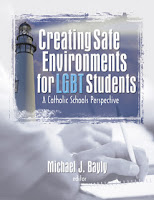
I appreciate the following excerpt from Women in Christianity by Hans Küng as it serves to remind us not only of Jesus’ understanding of community (no patriarchal hierarchy), but that a rigid, absolute uniformity was never and should never be the goal of the Church.
Indeed, some of our Catholic bishops (especially here in the U.S.) would do well to acquaint themselves with the reality that, as Küng notes, “the earliest Jerusalem community in which, according to Luke, people were of ‘one heart and one soul,’ showed individuals opposed to one another, a variety of positions, differentiated functions, and provisional structures.” As theologian Mary Hunt says: “‘Oneness’ need not look alike in how we are Catholic. Our oneness is in our intention and practice to be in communion with one another.”
_____________________________________
That Jesus himself relativized the “fathers” and their traditions, called women, too, into his group of disciples, and even expressed his high esteem for children, shows that patriarchal hierarchies cannot have appealed to him. Nor did he make, for example, celibacy a condition of discipleship. The church of the Jewish-Christian paradigm could have been called democratic in the best sense of the world (at any rate it was not aristocratic or monarchical): a community in freedom, equality, and brotherhood and sisterhood. For the church was:
– not a powerful institution, not a Grand Inquisition, but a community of free people;
– not a church of classes, races, castes, or ministries, but a community of those who in principle were equal;
– not an empire under patriarchal rule with a cult of persons, but a community of brothers and sisters.
However, we should note here that although all members of the early church in principle had an equal status, and in principle had the same rights and duties, this did not mean a uniform egalitarianism, a co-ordination and uniformity which leveled out the multiplicity of gifts and ministries. On the contrary: the earliest Jerusalem community in which, according to Luke, people were of “one heart and one soul,” showed individuals opposed to one another, a variety of positions, differentiated functions, and provisional structures.
For more of Hans Küng at The Wild Reed, see:
Hans Küng: Still Speaking from the Heart of the Church
Casanova-Inspired Reflections on Papal Power – at 30,000 Ft
In Search of a “Global Ethic”
An Intriguing Thought
“We Are Facing a Structural Problem”
Staying on Board
See also the previous Wild Reed posts:
What It Means to Be Catholic
The Holarchical Church: Not a Pyramid but a Web of Relationships
Many Voices, One Church
“Something Exciting and Joyful”
Revealing a Hidden History
Why the Bishops are Being Ignored
The “Complex Reality” of Catholicism
Image: “Yesus Memberkati Anak-anak” by Komang Wahyu. (Oil on canvas – 78cm x 88cm. Den Paser, Bali, Indonesia.)
Says Wahyu: “I was most impressed to read in Matthew 19 that Jesus said: ‘Let the children come to me, do not hinder them for the Kingdom of Heaven belongs to such as them.’ Adults often want to constrain children, Jesus wants to welcome them, to talk to them, to bless them. This inspired me to put it down on canvas, using a decorative style. The colours I have chosen are bright to reflect the bright and colourful mood when Jesus called the children. The aim was to represent the happy loving mood of Jesus when he was blessing the children who were witnessing to their parents and the disciples. Jesus has been placed symmetrically in the centre to become the focus. The message is that the love and grace of Jesus is for all people, from babies to old people, and that those who are disciples must regularly rethink their attitudes that Jesus is selective.”





















1 comment:
Thank you Michael for drawing attention to this.
I find it breathtaking how much of what the modern institutional church take as axiomatic, is in total contrast to practice of the early church which Chris left to us.
Church democracy, married and women clergy, an emphasis on love over rules - we have lost them all.
We must keep hammering away to remind our church of what we have lost.
Post a Comment